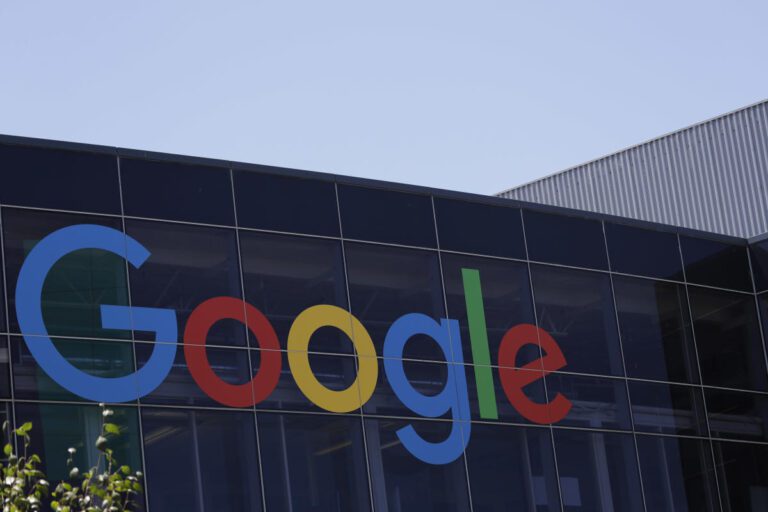For more than a year, business leaders have used the word artificial intelligence to signal that they, too, are on the cutting edge. Fueling investor frenzy for lower costs, higher productivity and smarter products, “AI” has become a profits mantra. Wednesday, Google (GOOG, GOOGLE) showed another way businesses can use AI and the excitement surrounding it: as an antitrust defense.
In a blog post responding to the Justice Department’s request proposal to potentially split GoogleThe company pointed to the thriving AI market and evolving research as reasons why the government’s argument is so flawed.
The Justice Department, in a court filing earlier this week, outlined potential solutions to reinvigorate competition in the search engine market. Google will have the opportunity to respond formally, but in the blog post the company said the government appears to be pursuing a broad agenda that threatens to harm consumers and American competitiveness.
“The DOJ’s outline also comes at a time when competition in how people find information is flourishing, with the emergence of all kinds of new entrants and new technologies like AI that are transforming the industry”, wrote Lee-Anne Mulhollandvice president of regulatory affairs at Google.
In Google’s view, the government’s heavy-handed approach to transforming the search market ignores nascent developments in AI, new competition in the field, and new ways of searching for information online, such as search engines. responses powered by AI.
The energy around AI and the potential disruption to how users interact with search is, from a competitive perspective, negative for Google, said Dan Ives, an analyst at Wedbush. But in another way, as a defense against antitrust charges, it’s positive.
“It’s an argument against monopoly that bodes well for Google,” he said.
Others are more skeptical of AI defense.
“The DOJ has specifically noted that this technological development is precisely why it is intervening at this point,” said Gil Luria, an analyst at DA Davidson. “They want to make sure that Google is not able to convert the monopoly it currently has in search into a monopoly in AI-enhanced search.”
Google’s huge investment in AI-powered search tools also carries risks for the company. At a fundamental level, the AI transition marks an overhaul of Google’s core search product. And with many people discovering the Internet through Google, fueled by its advertising empire, analysts wonder whether Google would jeopardize its search business to support a new, untested, AI-based regime.
“Moving to AI-enhanced search is a tricky task for Google initially because it changes the monetization model that Google has successfully refined over the past 20 years,” Luria said.
Instead of showing ads and sponsored links with every search, Google will need to experiment with different types of advertising when offering generative answers to its queries, he said. “While it will also be able to monetize these ads, it may take years to achieve the same level of monetization it enjoys in traditional search.”
The company is likely anticipating these risks, and some say a new paradigm could complement, or even supplant, the old search-based advertising model.
“I don’t think research dollars are going to disappear,” said Charlie Miner, an analyst at Third Bridge. “We don’t know exactly how they’re going to approach research monetization.” Advertisers, for example, could pay a higher premium to place their products in AI queries.
Of course, emphasizing advances in AI and the potential for new markets is not an effective defense against accusations of abuse of market power. In fact, Google and other major cloud computing providers, which are also among the major players in the AI market, have already attracted regulatory scrutiny regarding their AI agreements and partnerships.
Earlier this year, the Federal Trade Commission launched an investigation targeting Microsoft (MSFT), Amazon (AMZN) and Google’s investments in AI startups. The investigation focuses on three multi-billion deals: Microsoft’s partnership with ChatGPT maker OpenAI, as well as Amazon and Google’s relationships with AI startup Anthropic.
The FTC said it seeks information relating to competition for AI inputs and resources as well as the strategic rationale for agreements.
Hamza Shaban is a reporter for Yahoo Finance covering markets and the economy. Follow Hamza on @hshaban.
Click here for the latest technology news that will impact the stock market
Read the latest financial and business news from Yahoo Finance

